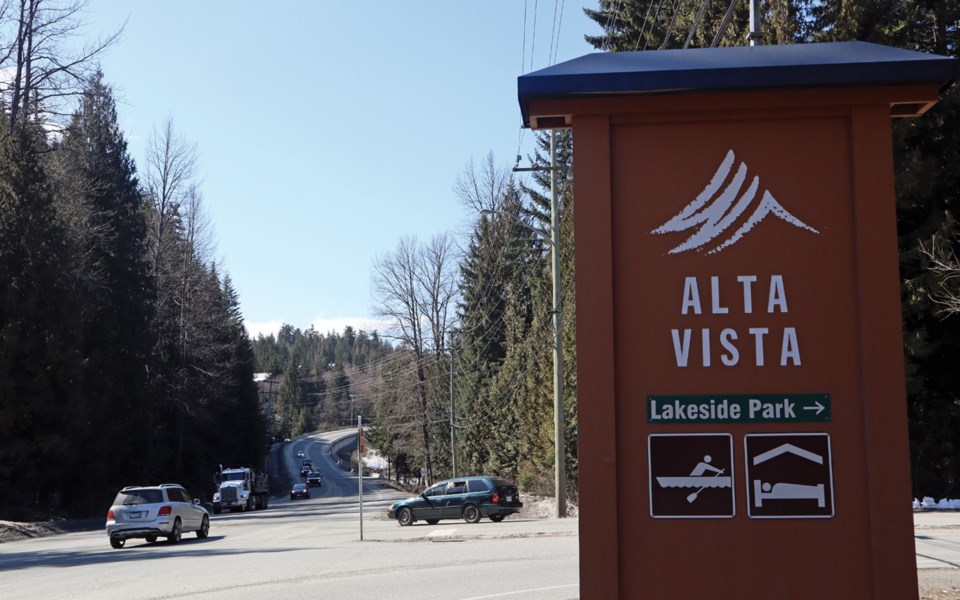work to upgrade aging services in Whistler's Alta Vista neighbourhood is set to begin after council awarded a contract worth $2.7 million to Capilano Highway Services at its April 7 meeting.
It was the first council meeting to be conducted remotely via teleconference since municipal buildings were closed to prevent the spread of COVID-19.
Councillors conferenced in from their respective homes, while Mayor Jack Crompton and key staff did so from municipal hall.
The Alta Vista project includes replacing water mains, sanitary sewers and storm water drainage infrastructure in the neighbourhood—some of the oldest remaining in Whistler.
The project is planned over three phases, ending in 2022, and includes road resurfacing and Valley Trail upgrades.
Capilano was one of five companies to bid on Phase 1 of the work, narrowly edging out Pedre Underground Utility Contractors Ltd.
The five bids ranged from a high of $3.36 million to Capilano's $2.7 million—though all five were above the Resort Municipality of Whistler (RMOW) engineer's estimate of $2.55 million.
The RMOW has budgeted $3,050,000 for Phase 1 of the work, which will be completed in 2020.
Capilano is keen to get started, said capital projects manager Tammy Shore, in a presentation to council.
"They are well known, they're a longtime company in the Sea to Sky," she said.
"[I'm] quite happy with what we got. I think we're getting quite good value for our money there."
A tender for Phase 2 of the project will be issued in January 2021.
Work will take place from April to November each year, and the project will impact a number of streets: Alpine Crescent, Alta Vista Road, Archibald Way, Carleton Way, Lakeside Road, Tyrol Crescent and St. Anton Way.
The project is spread over three years to "lessen the pain and the burden" on the neighbourhood, Shore said.
"It's a very busy place in the summer, so we didn't want to do all these upgrades in one year, obviously," she said.
"So there was a lot of thought put into the construction sequencing for this project."
Despite recent directions around physical distancing from provincial health officials, construction of critical infrastructure is still permitted, and Capilano (and all other RMOW vendors) will be following provincial safety guidelines with respect to COVID-19.
Safe work procedures will be reviewed, approved and adjusted on a daily basis as necessary.
The work is necessary is to minimize the risk of failure of aging pipes, reduce water loss from leakage, minimize ongoing odour issues, improve pedestrian safety, and reduce maintenance costs in the area.
Updates will be posted to whistler.ca.
Q4 FINANCIALS PRESENTED
Council also received the RMOW's Q4 financial update at the April 7 meeting.
At the end of the 2019 fiscal year, operating revenues were at 102 per cent and expenditures 98 per cent of annual budget amounts (compared to 108 per cent and 97 per cent last year), said director of finance Carlee Price.
Revenues last year were 4.1-per-cent greater than in 2018, and surpassed $100 million for the first time, Price acknowledged.
Investment income for the nine months ended Dec. 31, 2019, meanwhile, was $3,230,404 (unaudited)—146 per cent of the total budgeted for the year.
Most investment income is allocated to reserves in order to fund future expenditures, with some allocated to operations throughout the year.
While the RMOW ended 2019 in a sound financial position, the impacts of COVID-19 are already starting to pile up in 2020 (see related story on page 12).
Find the full quarterly update in the April 7 council package, starting on page 16, at: www.whistler.ca/municipal-gov/council/meeting-agendas-and-minutes.




